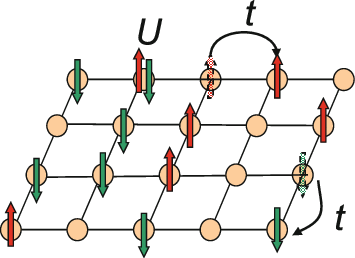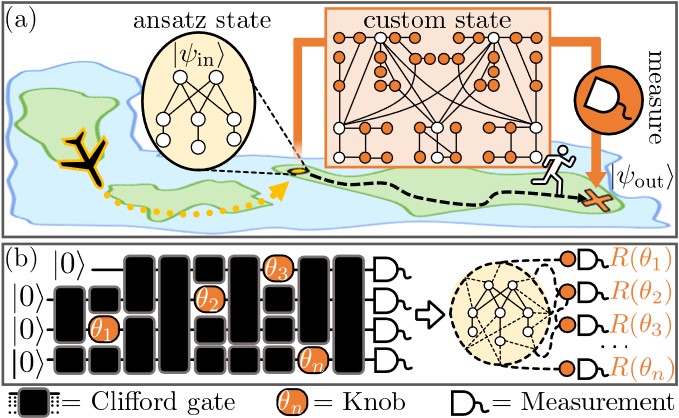The Schnetzer Quantum Computing Research Group consists of four members:Steve Schnetzer, a professor in the Rutgers University Physics & Astronomy Department; Eesh Gupta and Mohamed Boubendir, both undergraduates at Rutgers; and Andrew Wan, a student at Montgomery High School.
The primary focus of our research is studying solutions to the 2D Hubbard-Fermi Model Hamiltonian using quantum computers. The Hubbard model is an important model used in condensed matter physics. It has, for example, been used to explain the behavior of high-temperature superconductors. It consists of a lattice of charged spin-1/2 particles that can hop between neighboring lattice sites and that experience a Coulomb repulsion when two particles (of opposite spins) occupy the same lattice site. Of particular interest, is determining the macroscopic properties of the lattice, for example, phase transitions and the macroscopic spin state. Lattice sizes with more than a few tens of lattice sites cannot be solved by classical computations. Quantum computers with a sufficiently large number of qubits and a sufficiently high fidelity will, in principle, be able to solve indefinitely large lattices.
Our current research is two-pronged. We use the Quantum Variational Eigensolver (QVE) method developed for solving problems in quantum chemistry to obtaining solutions to the Hubbard Model. The VQE method is a hybrid procedure in which a quantum computer parametrizes a trial state and a classical computer is used to find the optimal parameters for minimizing the expectation value of the energy. Our goal is to develop parametrized quantum circuits on small lattices that cam be efficiently extended to extended to larger lattices. We are also studying methods of error mitigation that will be needed in the near-term before computers with full quantum error correction are available.


